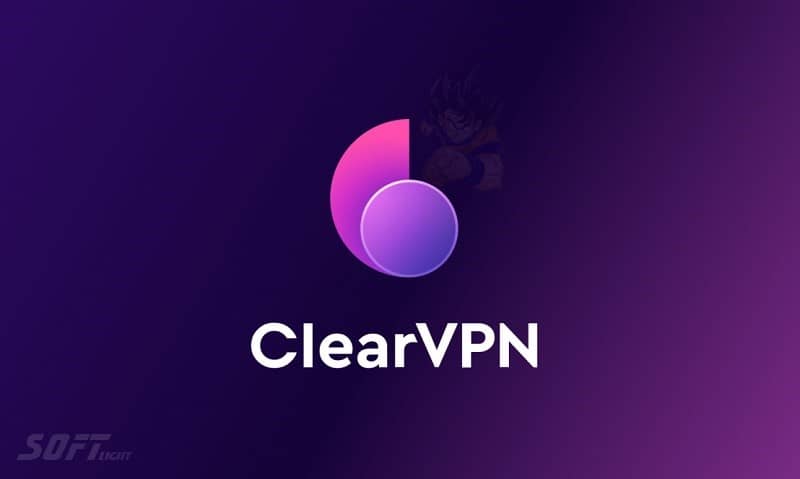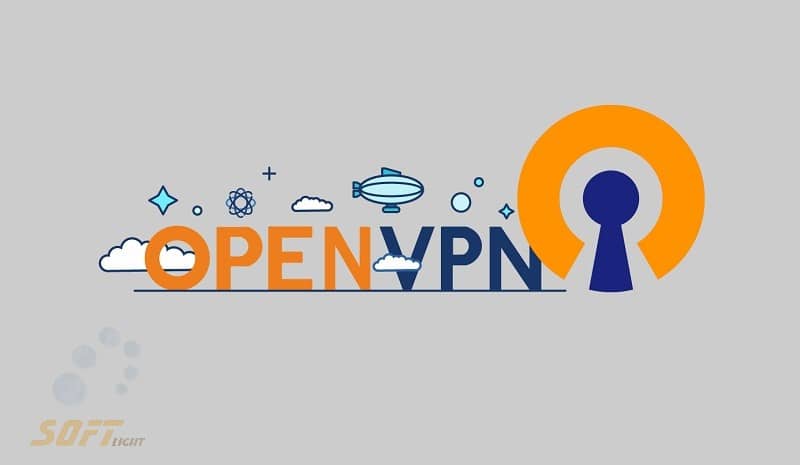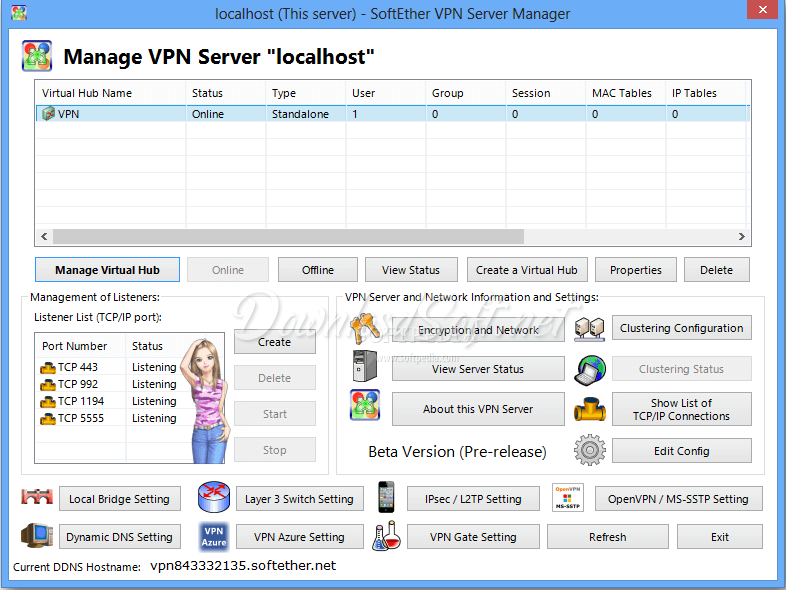WireGuard Download Free VPN 2025 for Windows PC and Mac
WireGuard Download Free VPN 2025 for Windows PC and Mac
Revolutionizing VPN Technology for Secure and Efficient Connections
In recent years, the demand for secure and efficient virtual private networks (VPNs) has increased significantly. As individuals and organizations seek ways to protect their online privacy, a new VPN protocol called WireGuard has emerged as a promising solution.
In this article, we will explore, its key features, its advantages, and how it is revolutionizing VPN technology.
Understanding WireGuard
Is an open-source VPN protocol designed to offer simplicity, security, and high performance. Created by Jason A. Donenfeld, aims to address the limitations of traditional VPN protocols such as IPsec and OpenVPN. It was first released in 2016 and has gained significant attention and adoption since then.

Key Features
2.1. Simplicity:
WireGuard is praised for its simplicity. Its codebase is significantly smaller than that of its predecessors, making it easier to review, understand, and audit. This simplicity contributes to improved security by reducing the potential attack surface and the chances of vulnerabilities.
2.2. Modern Cryptography:
Built on modern cryptographic primitives, including the Noise Protocol Framework, Curve25519, ChaCha20, Poly1305, and BLAKE2s. These primitives provide strong encryption, integrity, and authentication, ensuring that data transmitted through tunnels remains secure.
2.3. State-of-the-Art Performance:
Designed to deliver exceptional performance. Its lightweight design and efficient cryptographic algorithms minimize computational overhead, resulting in faster connection establishment and reduced latency. This performance advantage makes it an ideal choice for resource-constrained devices such as mobile phones and IoT devices.
2.4. Seamless Roaming:
Supports seamless roaming, allowing users to switch between different network connections (e.g., Wi-Fi to cellular) without interrupting the VPN tunnel. This feature is particularly valuable for users who frequently move between networks or rely on mobile devices.
Advantages of WireGuard
3.1. Enhanced Security:
Modern cryptographic primitives significantly improve security compared to older VPN protocols. Its use of the Noise Protocol Framework ensures strong encryption, forward secrecy, and resistance against various types of attacks. Additionally, WireGuard’s smaller codebase and regular security audits contribute to its robustness.
3.2. Improved Performance:
Lightweight design and efficient cryptographic algorithms translate into superior performance compared to traditional VPN protocols. With faster connection establishment and reduced overhead, users can enjoy a seamless and responsive VPN experience, even on low-powered devices.
3.3. Simplified Configuration:
Simplifies the configuration process, making it more user-friendly. Its minimalistic approach eliminates the need for complex configurations and reduces the likelihood of misconfigurations. This simplicity makes WireGuard an attractive choice for both individual users and system administrators.
3.4. Cross-Platform Compatibility:
Available on various operating systems, including Linux, Windows, macOS, Android, and iOS. Its cross-platform compatibility ensures that users can enjoy the benefits regardless of their preferred device or operating system.
WireGuard Implementation
Operates by creating secure point-to-point connections, referred to as tunnels, between clients and servers. The protocol leverages the Linux kernel’s networking stack, enabling efficient integration with the operating system. Uses a simple and intuitive configuration file, making it easy to set up and manage.
WireGuard in Practice
Has gained significant popularity and adoption since its release. Many VPN service providers now offer a supported protocol, allowing users to enjoy its benefits. Additionally, major Linux distributions, such as Ubuntu and Fedora, have integrated into their repositories, simplifying the installation process for users.
Potential Concerns and Limitations
Offers numerous advantages, it is essential to consider potential concerns and limitations. As with any technology, there is a need for ongoing security audits, bug fixes, and updates to ensure its continued effectiveness. Additionally, as is a relatively new protocol, it may not yet be supported by all VPN providers or routers.

Pros
1. Simplicity: Designed to be a simple and easy-to-use protocol. It has a straightforward and minimalistic codebase, making it easier to implement, audit, and maintain. This simplicity also contributes to its performance gains.
2. Fast and Efficient: Excellent performance. It is designed to be highly efficient, resulting in fast connection speeds and low latency. Its streamlined design and implementation make it more efficient compared to traditional VPN protocols like OpenVPN or IPsec.
3. Strong Security: Uses state-of-the-art cryptographic algorithms to ensure secure communication. It relies on the Noise protocol framework, which provides modern encryption, authentication, and key exchange mechanisms. Also has a smaller attack surface due to its minimalistic design, reducing the risk of vulnerabilities.
4. Quick Connection Establishment: Fast connection establishment times. This is particularly beneficial for mobile and roaming devices, as it allows for quicker and more seamless transitions between different networks.
5. Cross-Platform Support: Supported on various operating systems, including Linux, Windows, macOS, Android, and iOS. This broad compatibility makes it easier to deploy and use across different devices and platforms.
Cons
1. Maturity: Gained popularity and has been integrated into the Linux kernel, it is still relatively new compared to other VPN protocols. As a result, some organizations may be hesitant to adopt it due to concerns about its maturity and the potential for undiscovered vulnerabilities.
2. Limited Features: Focuses on providing a simple and efficient VPN solution, which means it lacks some advanced features found in other protocols. For example, it does not support features like built-in firewalling, traffic obfuscation, or complex routing configurations. However, these limitations may not be significant for many users who prioritize speed and simplicity.
3. Third-Party Audits: Code has undergone external audits, it is always beneficial to have multiple independent audits to assess the protocol’s security. As with any security-critical software, ongoing audits and security assessments are essential to maintain and improve its security posture.
4. Compatibility with Legacy Systems: May face compatibility challenges with legacy systems or environments that heavily rely on older VPN protocols. In such cases, additional configuration or compatibility layers may be required to integrate into existing infrastructure.
📌 Overall, it offers several advantages such as simplicity, performance, and strong security. However, its relative newness and limited feature set may make some organizations cautious about adopting it.
It is essential to assess your specific requirements and consider these pros and cons when deciding whether is the right VPN protocol for your needs.
System Requirements
1. Operating System: WireGuard is designed to work on various operating systems, including:
- Linux: Native support in the Linux kernel, making it a popular choice for Linux distributions.
- Windows: Supports Windows 7, 8, 8.1, and 10. It requires the client software to be installed.
- macOS: Supports macOS 10.11 (El Capitan) and later versions. The client software needs to be installed.
- BSD: Supported on various BSD distributions, including FreeBSD, OpenBSD, and NetBSD.
- Android: Has an official app available on the Google Play Store.
- iOS: Official app available on the App Store.
2. Hardware Requirements: Designed to be lightweight and efficient, making it suitable for a wide range of hardware configurations. There are no specific hardware requirements beyond what is necessary to run the supported operating system.
3. Kernel and Module Support (for Linux): If you are using it on Linux, you need to ensure that your kernel supports the module. Most modern Linux distributions have support built into the kernel. Additionally, you may need administrative privileges to load the module if it’s not already loaded.
4. Network Connectivity: Relies on standard network protocols, such as IP (Internet Protocol), UDP (User Datagram Protocol), and IPv4 or IPv6 addressing. Therefore, you need a functioning internet connection with the appropriate network protocols enabled.
5. Firewall Configuration: If you are using behind a firewall, you will need to configure the firewall to allow incoming and outgoing UDP traffic on the port (by default, port 51820). You may also need to configure port forwarding on your router if you’re accessing from outside your local network.
📌 It’s important to note that the specific requirements may vary depending on the operating system, distribution, and version you are using. Always refer to the official documentation or relevant resources specific to your platform for the most up-to-date and accurate information on system requirements.

Conclusion
WireGuard represents a significant advancement in VPN technology, offering enhanced security, improved performance, and simplified configuration. Its simplicity, modern cryptography, and cross-platform compatibility make it an appealing choice for individuals and organizations seeking a secure and efficient VPN solution.
As WireGuard free continues to gain traction and support, it is poised to reshape the VPN landscape and become the go-to protocol for safeguarding online privacy.
Technical Details
- Category: VPN Software
Software name: WireGuard
- License: Freeware
- Core: 32/64-bit
- Operating systems: Windows XP, 7, 8, 10. 11, Mac, Linux, iPhone and Android, and other systems
- Languages: Multilanguage
- Developer: Jason A. Donenfeld
- Official Website: wireguard.com







